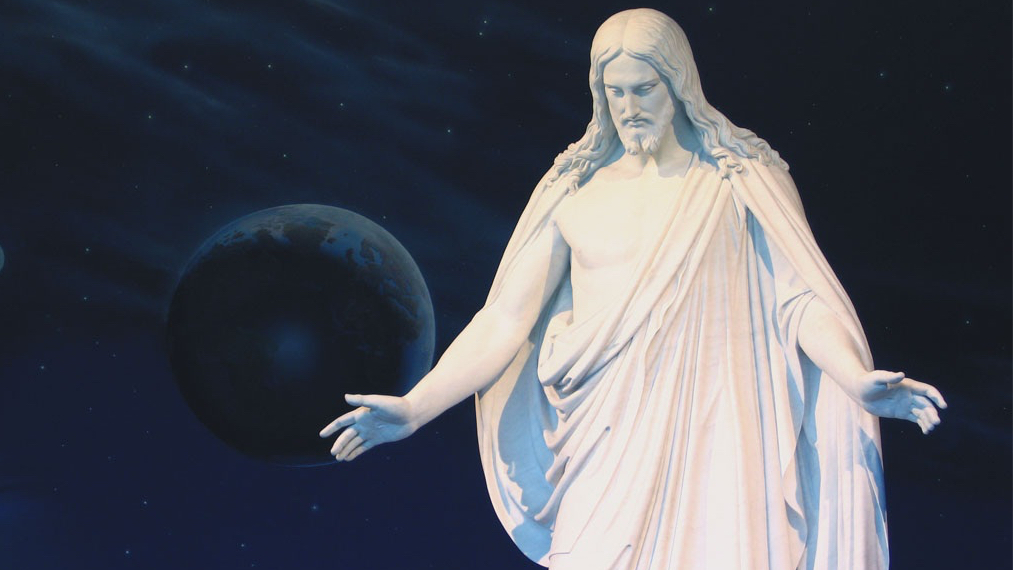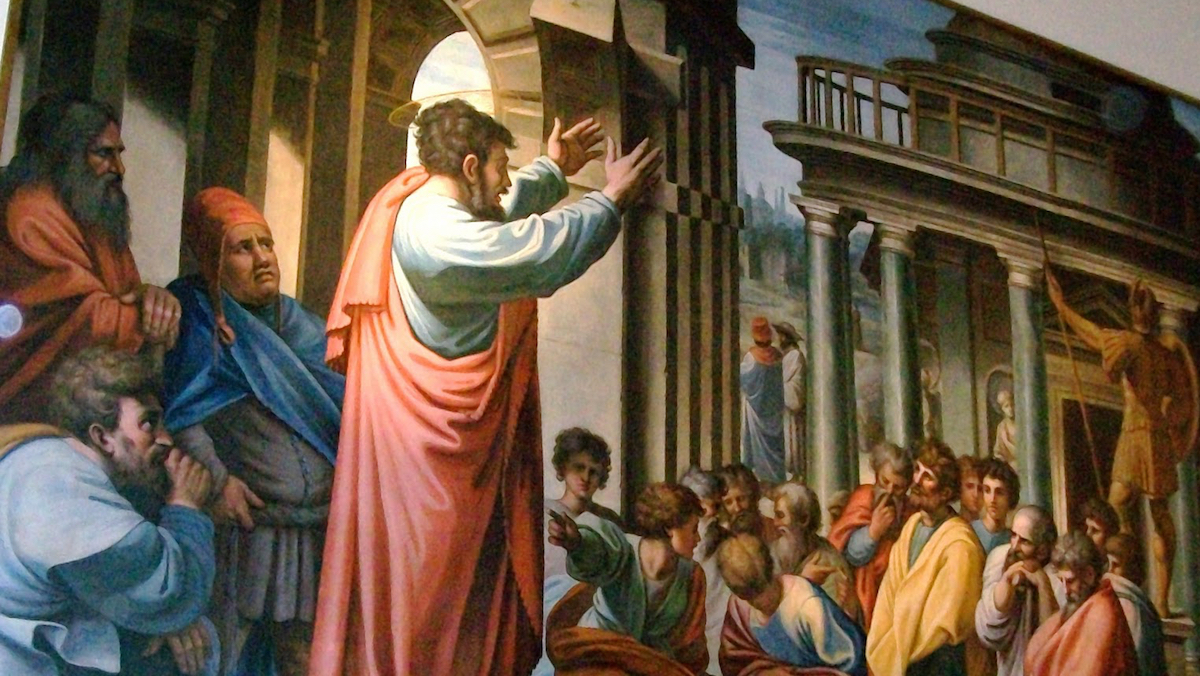The great Catholic monk and spiritual author Thomas Merton once wrote that “the principal problem in the spiritual life is the Promethean temptation.” He was referring to a story from Greek mythology, in which the hero Prometheus boldly climbed Mt. Olympus, the home of the gods, in order to steal fire from them and bring it back down to earth. Humanity greatly benefited from the introduction of fire, but the gods were furious, having wanted to keep this gift to themselves; accordingly, they captured Prometheus, chained him to a rock, and sent an eagle every day to chew out his liver in punishment. The idea behind the story, and behind Greek mythology in general, is that human beings and divine creatures are enemies and rivals; the gods are greedy and jealous of what they possess, and if people need something from them, they have to go and take it for themselves. Thomas Merton was suggesting that, “deep down, many of us Christians still believe that God is a [jealous] Lord Who dispenses favors grudgingly, only after a demonstration of virtue on our part” (Robert Barron, The Strangest Way, pp. 32-33). The truth, however, is that God delights in sharing Himself with us. We don’t have to earn His favor or prove ourselves worthy of being rewarded by Him; instead, we merely have to believe in His love for us, accept it, and share it with others. This three- fold process of Christian faith reflects the reality of the Holy Trinity. God the Father created us in love; Jesus the Son came to invite us to receive the Father’s merciful love, and the Holy Spirit enables us to share this love with others. The Three Persons of the Holy Trinity graciously offer us the chance to share in Their love for each Other—and when we accept, we allow ourselves to discover and experience the true meaning of life.
Because we can’t see God with our own eyes, it’s very easy believe that He’s somewhere “out there,” far from us; because He’s so different from us, it’s easy to assume He doesn’t really understand or care what we’re going through; because we will see Him one day as our Judge, it’s easy to fear that He’s watching over us at every moment, just looking for a reason to punish us. The readings for the Solemnity of the Most Holy Trinity assure us that none of these ideas are true. Moses encountered God, and spoke with Him directly, on many occasions. The Book of Exodus (34:4-6, 8-9) describes one of those times. It’s important to note that the Lord didn’t emphasize His power and perfection, or His majesty and all-encompassing glory; instead, He described Himself as “a merciful and gracious God, slow to anger and rich in kindness and fidelity.” The Lord loves all His creation, and we human beings most of all; that’s why, as Jesus (Jn 3:16-18) explained to Nicodemus, God sent His Son into the world: not for our condemnation, but for our salvation. God is on our side—so much so that He became one of us, experiencing everything we human beings experience except sin. All He asks in return is that we accept His merciful love for ourselves, and that we freely share it with others; as St. Paul (2 Cor 13:11-13) says, “encourage one another, agree with one another, live in peace, and the God of love and peace will be with you.”
During the terrible Spanish flu epidemic of 1918, which killed millions of people around the world, the wife of a wealthy American businessman became infected, and soon afterwards died. Shortly after this, the man’s young son also became ill and then passed away. The husband and father was shocked beyond recovery, and he too soon died of a broken heart. A search was made for the businessman’s will, but it couldn’t be found, so arrangements were made to have the estate and all the property auctioned off. An old family servant was eager to buy the portrait of the young boy, for she had loved him very much. When she purchased it, she found the man’s will attached to the back—a will in which the grieving husband and father decreed that all the property would belong to whatever person loved his son enough to buy his portrait (Tonne, Vol. 2, #70). So it is with God the Father: if we love His Son, we will inherit His Kingdom—and it’s the Holy Spirit Who helps and inspires us to live and to love in this way.
When, after our deaths, we stand before God to be judged, He won’t give us a test on religion or ask us to explain theological concepts or define ecclesiastical terms. Instead, He’ll ask us if we’ve loved Him and the people around us, and if we lived out that love in practical ways. That’s our final exam, and the Holy Trinity is eager to help us prepare for and pass it. However, we must do our part each day of our lives. It’s important to obey God’s commandments—not because we’ll be punished if we don’t, but because this helps us grow in grace and expresses our gratitude for the gift of life and for the many blessings we’ve received. It’s important to be faithful and active members of Christ’s Church—not because it makes life easier in the long run and gives us spiritual security, but because it proves we’re serious about following Jesus. It’s important to treat others the way we wish to be treated—not because this will earn us a good reputation and keep us out of trouble, but because it’s how we show our love is real. Each year the Church celebrates this Solemnity of the Most Holy Trinity not only as an expression of our faith in the Triune God, but as an invitation to share in Their love. Answering this invitation is the reason we’re here on earth, and the means by which we’ll enter heaven.








